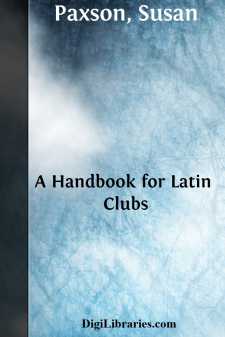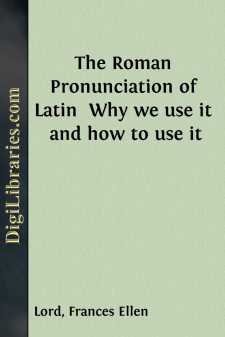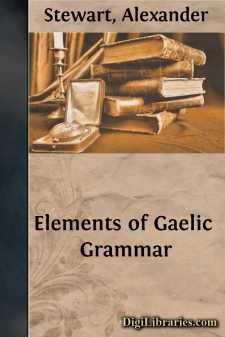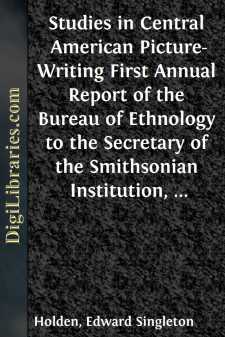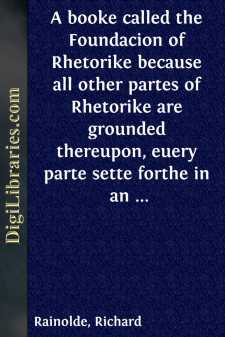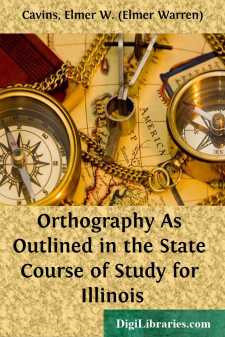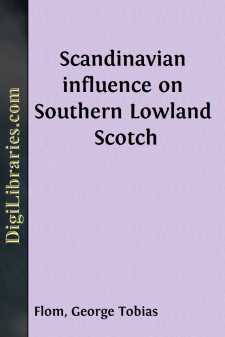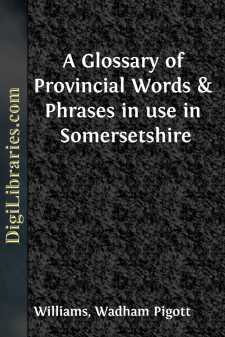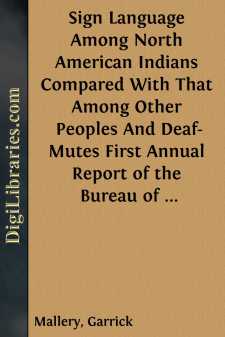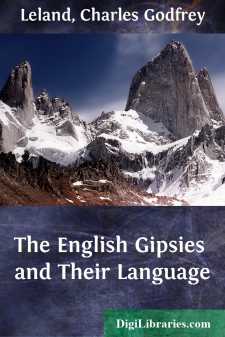Language Arts & Disciplines
Language Arts & Disciplines Books
Sort by:
by:
Susan Paxson
THE VALUE OF LATIN"Latin is the most logically constructed of all the languages, and will help more effectually than any other study to strengthen the brain centres that must be used when any reasoning is required."—Dr.Frank Sargent HoffmanThe Latin Language.Mosaics in History. Arthur Gilman.Chautauqua. Vol. ii, p. 317.Illustrated History of Ancient Literature. John D. Quackenbos. P. 305.A...
more...
INTRODUCTION. The argument brought against the ‘Roman pronunciation’ of Latin is twofold: the impossibility of perfect theoretical knowledge, and the difficulty of practical attainment. If to know the main features of the classic pronunciation of Latin were impossible, then our obvious course would be to refuse the attempt; to regard the language as in reality dead, and to make no pretence of...
more...
INTRODUCTION. The utility of a Grammar of the Scottish Gaelic will be variously appreciated. Some will be disposed to deride the vain endeavour to restore vigour to a decaying superannuated language. Those who reckon the extirpation of the Gaelic a necessary step toward that general extension of the English which they deem essential to the political interest of the Highlands, will condemn every project...
more...
Since 1876 I have been familiar with the works of Mr. John L. Stephens on the antiquities of Yucatan, and from time to time I have read works on kindred subjects with ever increasing interest and curiosity in regard to the meaning of the hieroglyphic inscriptions on the stones and tablets of Copan, Palenque, and other ruins of Central America. In August, 1880, I determined to see how far the principles...
more...
by:
Richard Rainolde
To the Reader. PHTHONIVS a famous man, wrotein Greke of soche declamacions, to en-structe the studentes thereof, with all fa-cilitée to grounde in them, a moste plenti-ous and riche vein of eloquence. No manis able to inuente a more profitable waieand order, to instructe any one in the ex-quisite and absolute perfeccion, of wisedome and eloquence,then Aphthonius Quintilianus and Hermogenes. Tullie...
more...
INTRODUCTIONBY DR. EDWIN C. HEWETT. I have long thought that the careful, discriminating study of words is much neglected in our schools. And I am glad to approve, and help to forward, anything that will promote such a study. Not only will such a study improve a person's language greatly, but it will, at the same time, do much to improve the clearness and precision of his thinking; thought and...
more...
PREFACE. This work aims primarily at giving a list of Scandinavian loanwords found in Scottish literature. The publications of the Scottish Text Society and Scotch works published by the Early English Text Society have been examined. To these have been added a number of other works to which I had access, principally Middle Scotch. Some words have been taken from works more recent—"Mansie...
more...
INTRODUCTION. The following paper from the pen of Dr. Prior was read at a Conversazione of the Society at Taunton, in the winter of 1871, and as it treats the subject from a more general point of view than is usually taken of it, we print it with his permission as an introduction to our vocabulary:— On the Somerset Dialects. The two gentlemen who have undertaken to compile a glossary of the Somerset...
more...
by:
Garrick Mallery
INTRODUCTORY. During the past two years the present writer has devoted the intervals between official duties to collecting and collating materials for the study of sign language. As the few publications on the general subject, possessing more than historic interest, are meager in details and vague in expression, original investigation has been necessary. The high development of communication by gesture...
more...
CHAPTER I. INTRODUCTORY. The Rommany of the Roads.—The Secret of Vagabond Life in England.—Its peculiar and thoroughly hidden Nature.—Gipsy Character and the Causes which formed it.—Moral Results of hungry Marauding.—Gipsy ideas of Religion. The Scripture story of the Seven Whistlers.—The Baker’s Daughter.—Difficulties of acquiring Rommany.—The Fable of the Cat.—The Chinese, the...
more...


